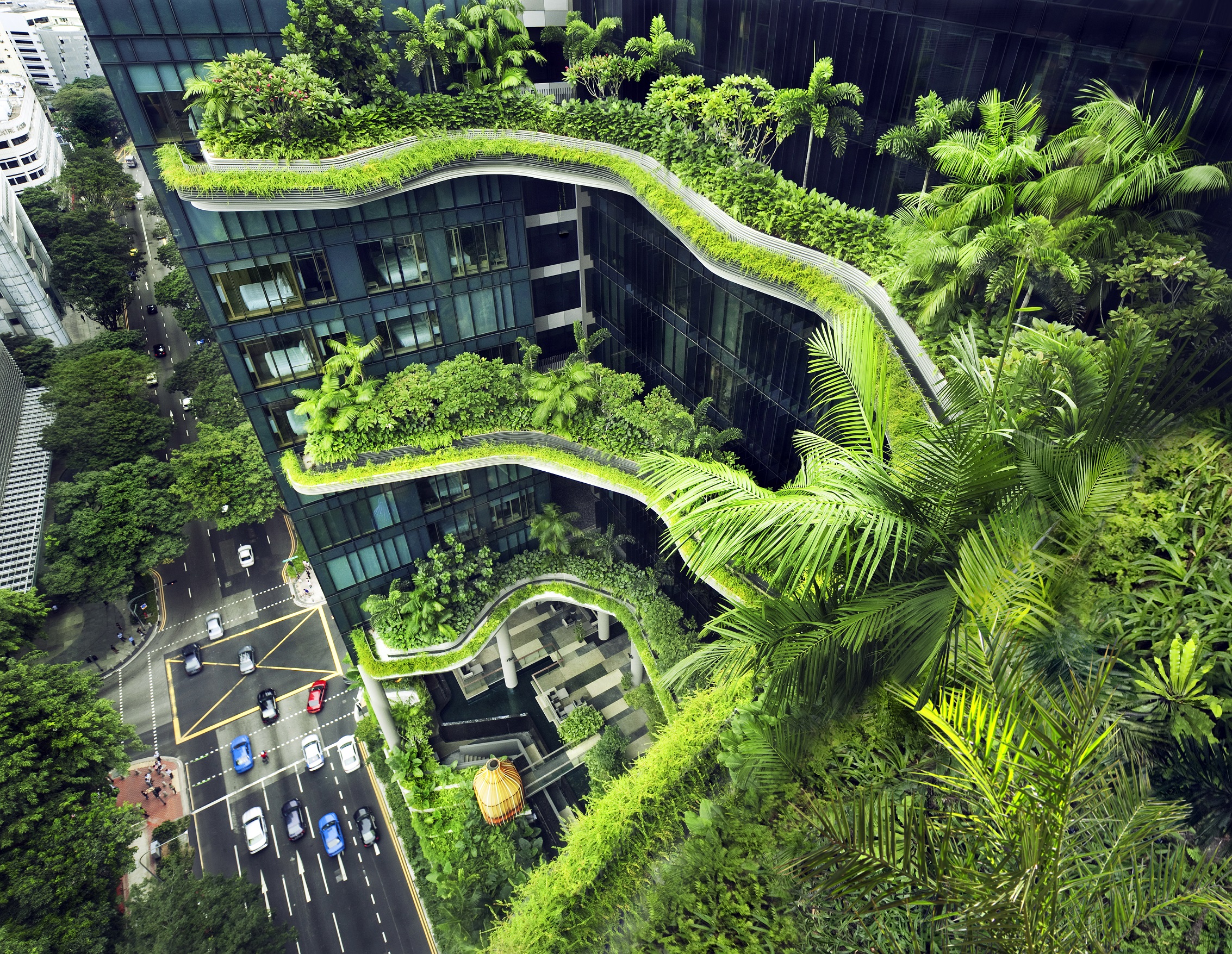Singapore says it’s taking the lead in legislating changes to encourage sustainable urban design that will help it to meet COP26 goals of global net zero emissions and keeping the global temperature rise to 1.5 degrees. To do that, its government launched a Green Plan, which relies heavily on the concept of biophilia, a term coined in 1984 by E.O. Wilson to describe his belief that humans inherently enjoy the diversity of life on earth, and that much of our well being comes from our connection to the earth, and its natural rhyhms.
Not only will green urban design render Singapore ( which is a city, a nation, and a state) prettier and more pleasant over the next ten years, it can help reduce the disruptions climate change is expected to bring to people’s lives. That’s going to a big issue as cities, supply chains, and eco-systems are increasingly affected by climate-change related weather, and planners are looking for more ways to future-proof Singapore and other cities against negative environmental effects.
Parks for people
For Singapore, elements of the plan include designating an additional 200 hectares for nature parks that would ensure every household lives within a ten-minute walk of a park. One million more trees will absorb 78,000 tonnes of CO2. With a tree canopy that’s already about 30 per cent the additional greenery will help act as lungs for the city.
Leading the charge are local proponents such as:
Ramboll Studio Dreiseitl, an interdisciplinary practice with a focus on sustainable living cities that has done extensive work on parks and biodiversity projects in Singapore.
The National Parks Board of Singapore, a government agency that leads on greenery, biodiversity conservation, wildlife and animal health, and sustainable ecological management issues.
Yun Hye Hwang, a landscape architect and Associate Professor in the Department of Architecture at the National University of Singapore who focuses on moving away from manicured landscapes to bio-diverse urban ecologies.
Biophilic projects make Singapore more sustainable
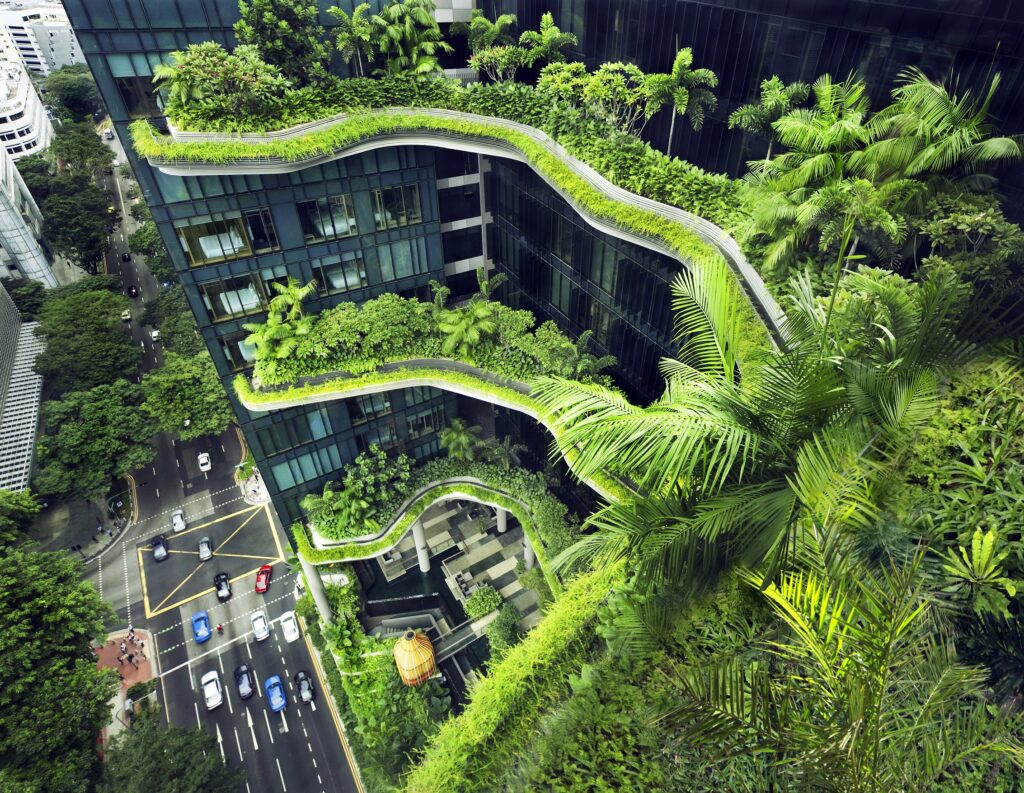
Cascading green terraces at the Parkroyal on Picketing Hotel.
WOHA Architects.
Pic Patrick Bingham-Hall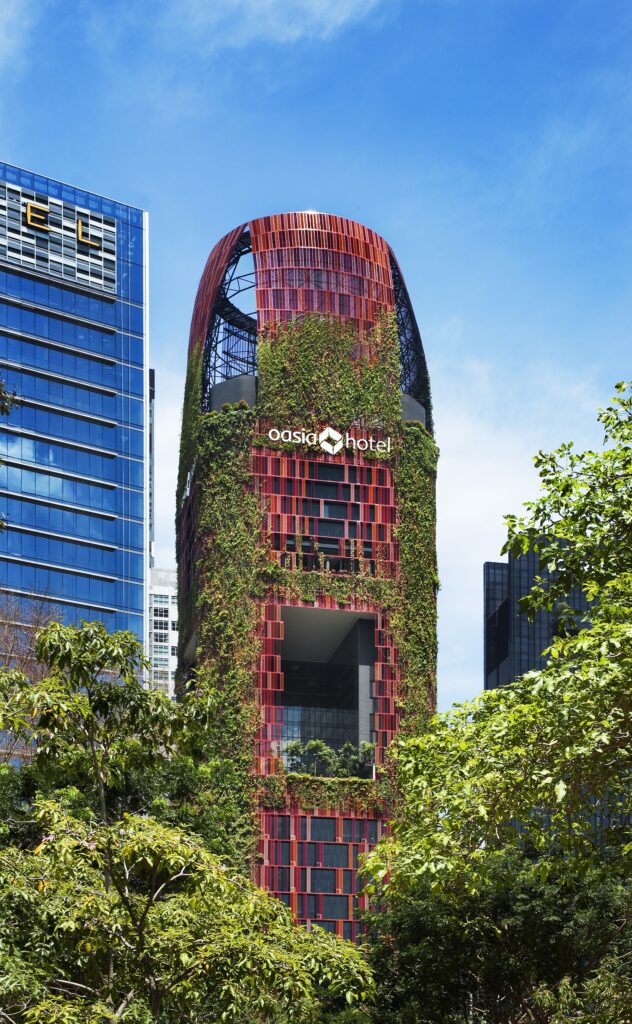
Oasia Hotel Downtown, designed by WOHA and STX Landscape Architects
Pic Patrick Bingham-Hall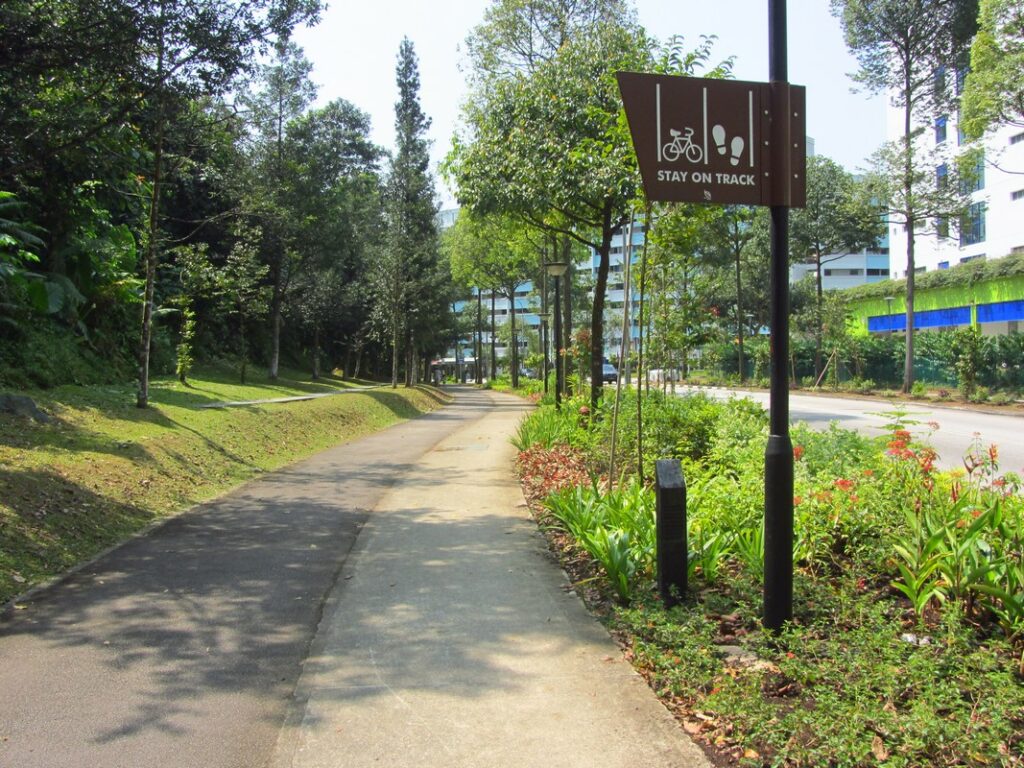
Bukit Batok East Park Connector is part of network of accessible, sustainable green spaces. 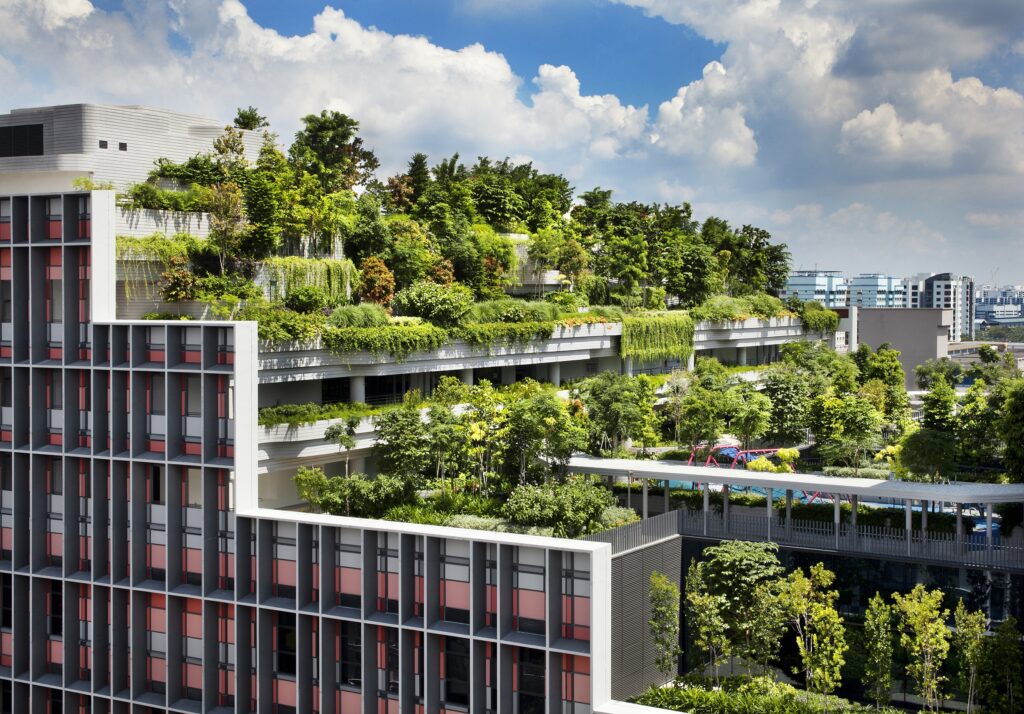
The Kampung Admiralty by Ramboll Studio Dreiseitl and WOHA.
Pic Patrick Bingham-Hall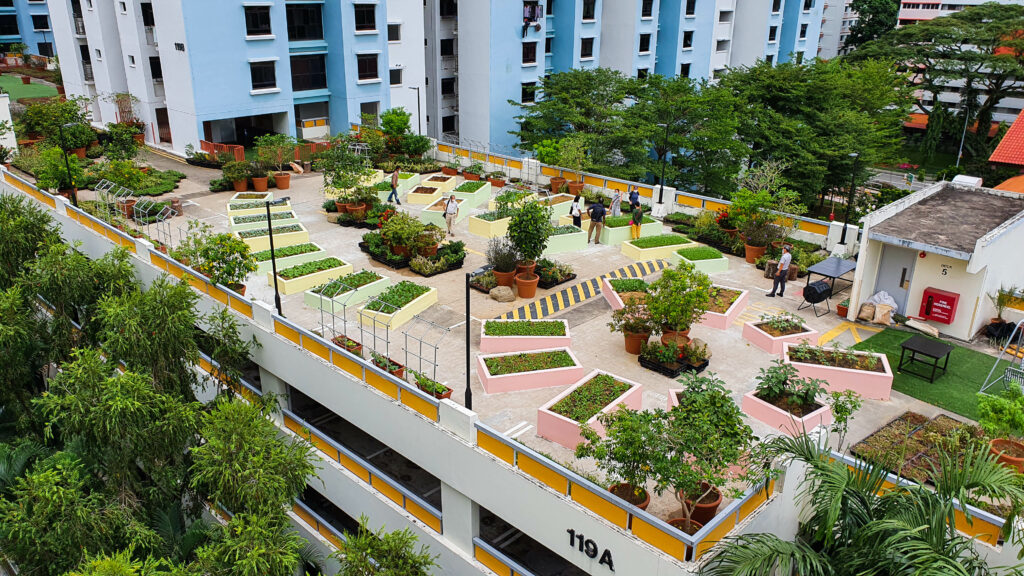
The Giving Garden at Kim Tian on the top of the rooftop of a sustainable multi-storey carpark was created by the National Parks Board 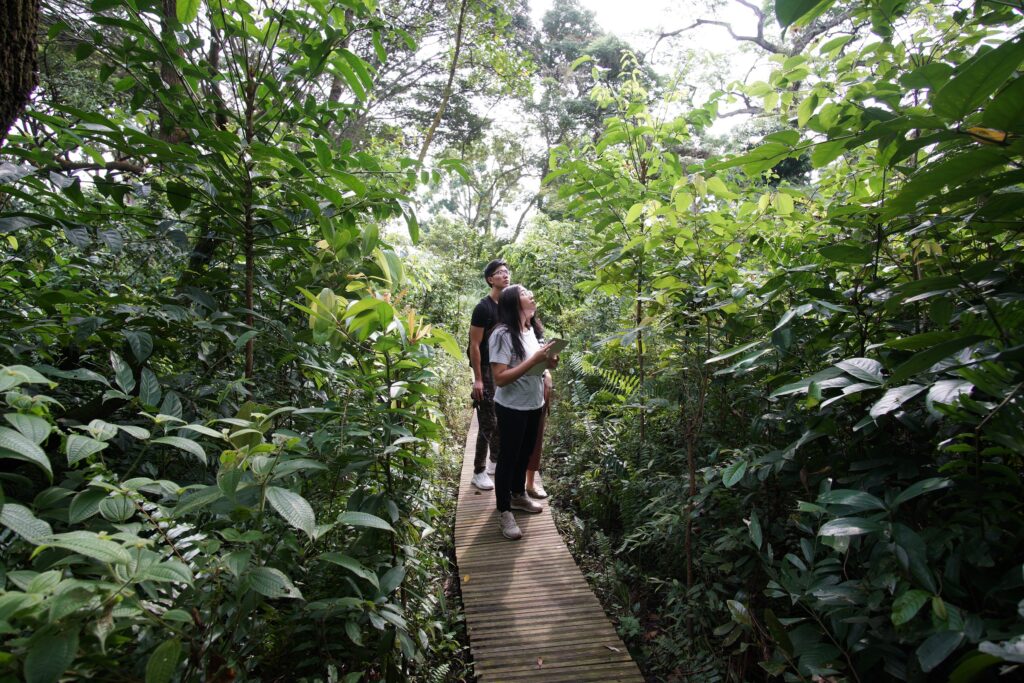
.–>
The Ventus Naturalized Garden was designed by landscape artist Yun Hwang, who says that Biophilia is about the relationship between humans and nature. Pic Zi En Jonathan Yue
Singapore also has seven therapeutic gardens, where people can benefit from the positive effects of nature on their health. The plan is to have 30 such therapeutic gardens by 2030.

